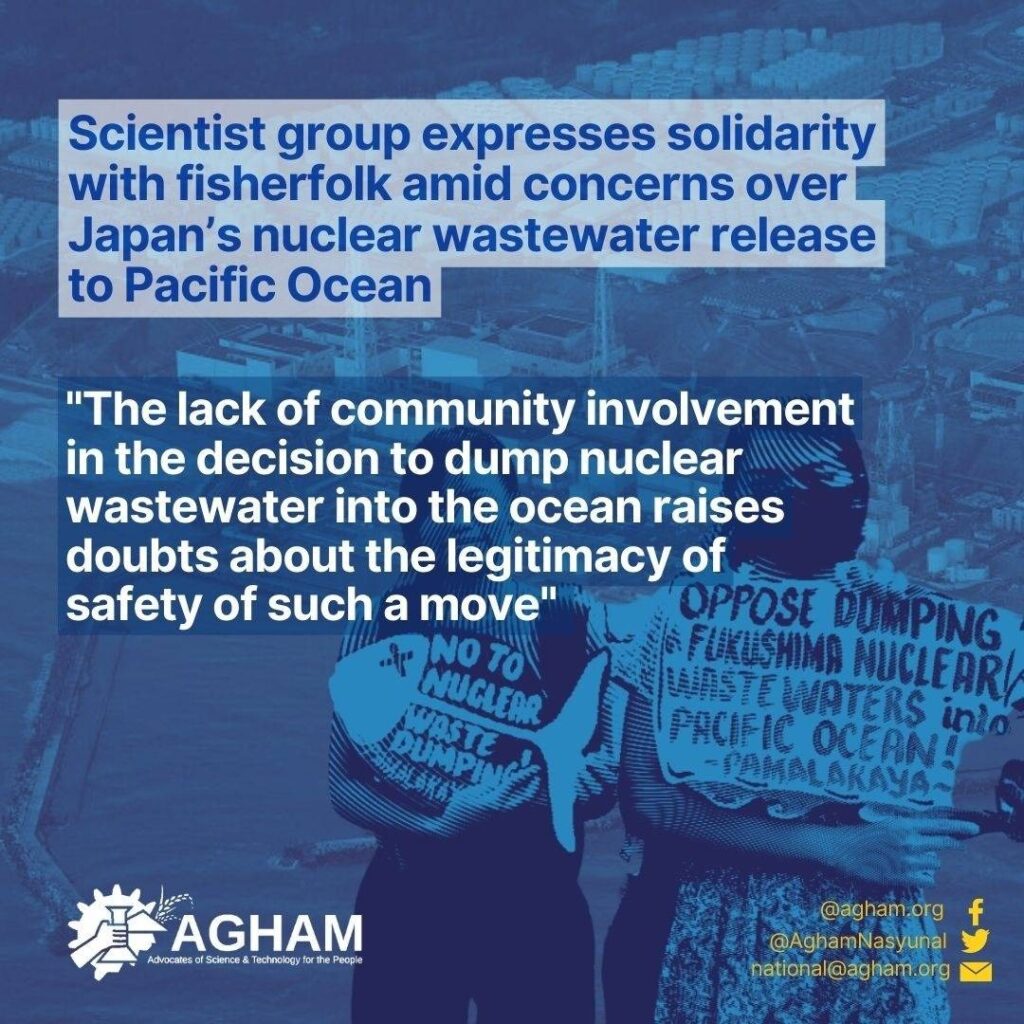
Scientist group AGHAM – Advocates of Science and Technology for the People expressed their solidarity with fisherfolk who protested in front of the Japanese Embassy on Saturday, August 26, against the release of nuclear wastewater from the Fukushima Daiichi Nuclear Power Plant into the Pacific Ocean. According to the group, the event has a range of effects that encompass public health, economic, scientific, ecological, and social concerns.
“The lack of community involvement in the decision to dump nuclear wastewater into the ocean raises doubts about the legitimacy of safety of such a move,” said Vincent Munar, nuclear engineering student and member of AGHAM. “Relying solely on data from the International Atomic Energy Agency (IAEA) and the Tokyo Electric Power Company (TEPCO) for assessing the safety of the wastewater release is insufficient, especially as no independent parties and experts were consulted to validate the findings.”
In the global context, Japan had set a tritium limit of 60,000 Bq/L, whereas the released wastewater from the Fukushima Daiichi plant supposedly only contains approximately 206 Bq/L. By comparison, Norway established a limit of 100 Bq/L, and the United States allowed up to 750 Bq/L.
“The fact that Japan’s tritium limit is significantly higher than the World Health Organization’s standard of 10,000 Bq/L is a cause for concern,” Munar continued. “These concerns, coupled with others surrounding the nuclear wastewater release, underscore the need for a comprehensive assessment of all aspects involved.”
The group also highlighted the economic effects of the release, which they said affect not only the fisherfolk of Japan but also of all countries around the Pacific such as the Philippines.#
0 Comments